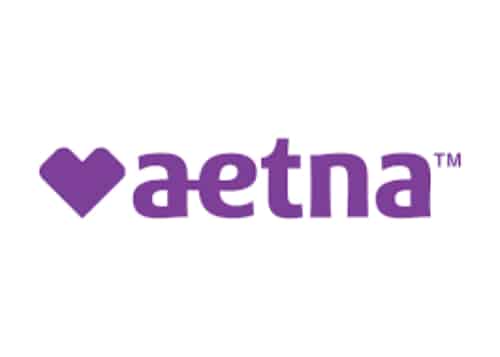How to Pay for Rehab
Call Now
The cost of addiction treatment can vary widely based on the level of care provided. Inpatient treatment centers tend to be the most expensive because they are the highest level of care. Outpatient treatment centers tend to be less of a financial burden because you are provided with a lower level of care.
Navigating how to pay for rehab can be a difficult process, and often people are so focused on convincing the addict to get treatment that cost is not at the forefront of their mind. Although health insurance is usually the first thing that comes to mind when getting treatment, there is a multitude of options on how to pay for rehab.
The Laws Protecting Addiction Treatment

Laws like the Affordable Care Act (ACA), Family and Medical Leave Act (FMLA), and the Americans with Disabilities Act (ADA) can be used to protect you and your loved ones in your fight against addiction.
The American Disabilities Act (ADA)
The ADA protects people who are addicted to alcohol regardless of whether their addiction is happening currently or in the past. However, if you are addicted to drugs, you are only protected under this law if you are not currently using them and are in recovery. The ADA’s definition of recovery includes people who are participating in a supervised rehabilitation program.
The Affordable Care Act (ACA)
You are now able to use your employer’s insurance to go to a treatment center because the ACA requires that you receive addiction treatment when necessary. Some employers may ask you to show medical necessity in order to go to rehab. Often in these cases, a medical detox will be covered, but any other treatment may not be covered.
The Family and Medical Leave Act (FMLA)
This act can be used for a person who is going to rehab because it protects the individual from losing their job while they are receiving treatment. A healthcare provider can deem an employee unfit to work due to the complications of addiction.
Drug Rehab Insurance Coverage
There are different types of rehab services and insurances do not always cover every part of the service. These services include:

Private Insurance Plans
Private insurances are typically divided into three categories of plans; HMO plans, PPO plans, and POS plans.
Health Maintenance Organization (HMO)
HMOs have no or lower deductibles and overall coverage is usually lower than a PPO plan. HMOs cover healthcare costs for all in-network providers and services. Payers will usually be responsible for paying out-of-pocket if they seek care with a provider that is out-of-network.
Preferred Provider Organization (PPO)
PPO plans have higher monthly premiums and lower copays for treatments and services, but PPOs can have higher deductibles than HMO plans.
Point of Service (POS)
Private Insurance Plans
If you are not already covered by your employer’s insurance, you can request coverage. Once you receive coverage, you will be able to seek treatment. Treatment with private insurance is easier to come by than with public insurance.
The second most common type of private insurance is one that is provided to you through a parent. Young adults can use their parent’s insurance as long as they are a dependent and until they are 26 years old.
Private insurances can be expensive, but they compensate for more treatment options and more than one treatment program. However, your insurance may not pay the total amount of your treatment.
With private insurance, you are responsible for the deductible and the insurance company will cover the rest. We recommend you check with the treatment facility to see if they accept your insurance.

Aetna
People with Aetna insurance may be covered for partial hospitalization (PHP), detox, inpatient rehab, and continuing care. However, the specifics of a person’s individual plan will determine their coverage.

Anthem
Anthem insurance offers coverage for drug and alcohol addiction in addition to mental health. The extent of their benefits depends on the patient and the specific insurance plan that the individual has.
Cigna
Cigna
People who are looking for addiction treatment will be utilizing the Behavioral Health division within Cigna. This division can provide educational tools and resources to help you with your addiction.
Public Insurance
People are eligible for Medicaid if they are living with disabilities and have little funds. People are eligible for Medicare when they are 65 years and older.
Your public insurance only covers part of your addiction treatment no matter what the facility’s pricing is. You will be responsible for the remainder of the cost.
How to Pay for Rehab Without Insurance
Crowdfunding
Scholarships
Government Programs
Unfortunately, these government programs often have a long waiting list due to them being subsidized, if not free. This stalls the process of finding recovery if you cannot afford another facility.
Get Help on How to Pay For Rehab
Healthy Life Recovery can help you with financing options and figuring out if your insurance is accepted by us. Contact us today to let us help you find the best way for you to pay for treatment and how much it will cost you.

Medically Reviewed By:
Dr. Sanjai Thankachen
Dr. Sanjai Thankachen graduated from Adichunchanagiri Institute of Medicine in 2000. He completed his residency in psychiatry in 2008 at Creedmoor Psychiatric Center in New York. Dr. Thankachen is currently working with Pacific Neuropsychiatric Specialists in an outpatient practice, as well as working at multiple in-patient psychiatric and medical units bringing his patients the most advanced healthcare treatment in psychiatry. Dr. Thankachen sees patients with an array of disorders, including depression, bipolar illness, schizophrenia, anxiety, and dementia-related problems.

Edited for Clinical Accuracy By:
Sean Leonard, Psychiatric Nurse Practitioner
Sean Leonard is a board-certified psychiatric nurse practitioner. He received his master’s degree in adult geriatric primary care nurse practitioner from Walden University and a second postmaster specialty in psychiatry mental health nurse practitioner from Rocky Mountain University. Sean has experience working in various diverse settings, including an outpatient clinic, inpatient detox and rehab, psychiatric emergency, and dual diagnosis programs. His specialty areas include substance abuse, depression, anxiety, mood disorders, PTSD, ADHD, and OCD.
